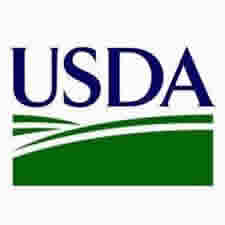 |
Gain Report: Nigeria's rice imports increase |
Report Highlights: Nigeria's rice imports have increased largely because imported parboiled rice competes with other basic food staples. The decision of Government of Nigeria (GON) to ban rice imports through its land borders has somehow reduced cross-border smuggling. Furthermore, rice importers have indicated interest in turning to India following the recent reentry of that country into the non-basmati rice trade.
Post:
Lagos
Executive Summary:
Nigeria’s rice imports are trending upwards. Post is revising import estimates for 2010/11 to 2.3 million tons, up from 1.75 million tons in 2009/10. The increase reflects the fact that rice is well established as a basic food staple and the price of imported parboiled rice competes effectively with local alternatives. These local alternatives, such as yam, cassava, maize are in short supply and cost more than in years past. Nigeria’s rice imports are expected to rise in tandem with increased demand associated with yearend festivities. Traditionally, importers increase purchases during the September to December period. Importers are interested in Indian rice following the re-entry of that country into the non-basmati rice trade.
Trade sources indicate that cross-border smuggling of rice has reduced significantly following the decision of the Government of Nigeria (GON) to restrict rice importation to just the sea ports and prohibit imports through land borders. The GON took this decision to reduce evasion of duty payments and to ensure that the commodity continues to come into the country fairly taxed.
There is a renewed drive by the GON to increase domestic rice production and to make the country self-sufficient. On August 17, 2011, President Goodluck Jonathan inaugurated the National Economic Management Team to drive national economic revival. The team unveiled an Agriculture Transformation Action Plan which has listed rice as one of the five commodities to attract special focus to increase production. Under this program, the GON intends to increase the production of high quality processed rice from 2.6 million tons presently to five million tons by 2015, adding one million additional jobs to the agricultural sector in the process….
Prepared By: Marcela Rondon, Regional Agricultural Attaché and Michael David, Agricultural Specialist
Approved By: Russ Nicely, Regional Agricultural Counselor
Enjoy this article? Feel free to share your comment, idea or opinion in the comment section
| Tags: | Rice Imports Ban Production Agriculture. |
Related Articles

|
Nominal Anchor for Monetary PolicyA nominal anchor for monetary policy is a single variable or device which the central bank uses to pin down expectations of private agents about the nominal price level or its path or about what the Bank might do with respect to achieving that path (Krugman, 2003). Generally, the two kinds of nomina [Read more]
|
Posted: 13 years ago |

|
Annual Sugar Report for Nigeria - MY2016/17Report Highlights:
Sugar production is expected to remain relatively flat at 70,000 tons, which signals limited progress of Nigeria’s backward integration plans for sugar production. Raw sugar imports are estimated to decline marginally by three percent, largely due to limited availability [Read more]
|
Posted: 9 years ago |

|
Monetary Policy Implementation Framework and OutcomePrior to the banking sector consolidation exercise that was concluded in December 2005, the framework for monetary policy in Nigeria had witnessed some transformation. This included the shift from the use of direct monetary policy control to indirect (market-based) monetary management, and the switc [Read more]
|
Posted: 13 years ago |


